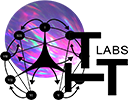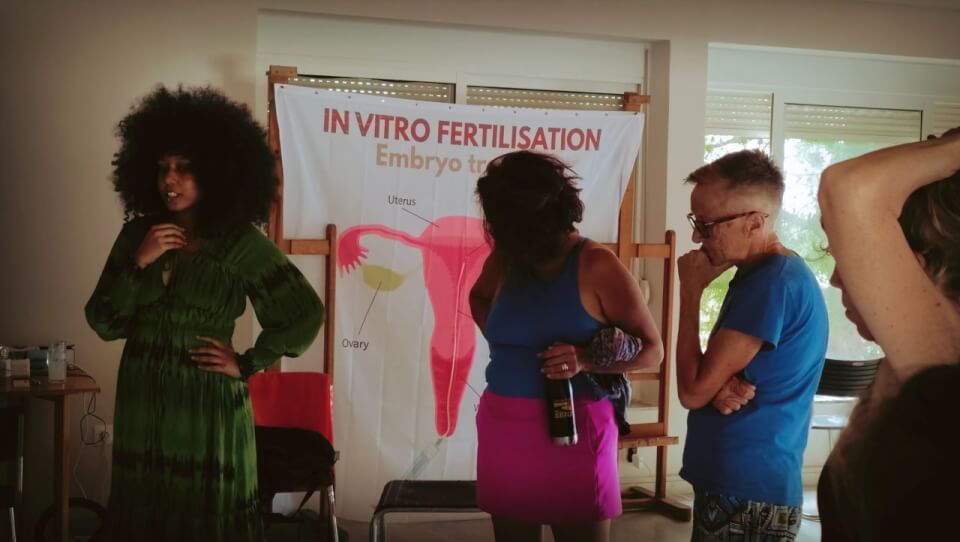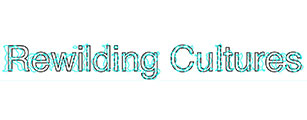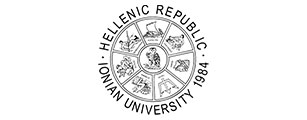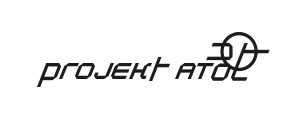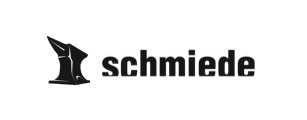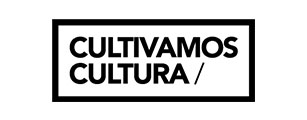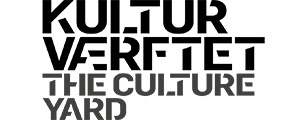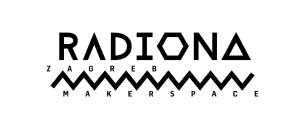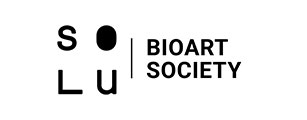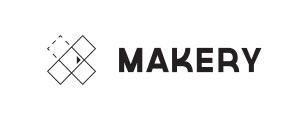The Ionian University’s Department of Audio & Visual Arts is thrilled to announce the successful conclusion of its final edition of TTTlabs BioFeral.BeachCamp (BFBC) – NewRepro-FlaOctomingopus (NR-FO) – Non-Human Bioart/Bodyart on the Beach. Held from September 15-25, 2024, at the Athens Fine Arts School's Annex of Rethymnon in Crete, this ambitious event brought together participants for an intensive, speculative exploration of bioart and biotechnology with a strong focus on emerging reproductive technologies.
As part of the Feral Labs Network, co-funded by the Creative Europe Program of the European Union, this final TTTlabs BFBC session took an experimental approach to art-science collaboration, addressing ethical, cultural, and biological dimensions of IVF, germline editing, and artificial wombs through DIY (Do-It-Yourself), DIWO (Do-It-With-Others), and DITO (Do-It-Together) methodologies. The diverse cohort of participants, including bioartists, developmental biologists, animal behavior scientists, and performance artists, engaged in open-ended research and performative storytelling on topics such as Artificial Germ Cells, global surrogacy, embryo grading, and animal enrichment studies.
Exploring Bioethics through Bioart and Performance
Under the artistic direction of Adam Zaretsky, participants delved into speculative narratives and hands-on experimentation with embryonic development, focusing on the artificial implantation of genetically modified human-animal chimeras. This session’s thematic frame—NewRepro-FlaOctomingopus
Skill-Sharing and Collaborative Art-Science Experimentation
As a durational, intensive skill-sharing event, NR-FO – NH-BB provided space for hacking research methods and exploring wetlab Bioart in an 'ethics-in-action' context. The group’s work was realized through innovative audiovisual mashups, speculative bioart experiments, and the prototyping of surgical apparatus, highlighting the unique potential of merging scientific investigation with body art and performance. Together, the participants considered pressing questions around In Vitro Fertilization: How do fertilized embryos implant? What are the ethical considerations of this intimate biotechnological process?
Meet the Participants
- Nupur Doshi, a curator, highlighted para-art trajectories by examining cross-disciplinary provocations in counter-histories and speculative futures.
- Nathalie Dubois Calero, a bioartist, explored human-microbe and more-than-human relationships through interactive ontological games.
- Lyn Hagan, an artist and academic, captivated with unconventional observational positions and dystopian hypothetical narratives.
- Kinyua Malaika, a biologist, shared insights on forced sterilization programs, bridging science and community health awareness.
- Mellissa Monsoon, an artist, approached themes on chronic health conditions, and shared a workshop bridging ceramics and PTSD care.
- Praba Pilar, a diasporic Colombian artist, contributed her interdisciplinary work on life technologies, provoking discussions on bioethics.
- Chiara Pitrola, a hydrofeminist practitioner, introduced rituals as technologies for ecological care, advocating deep listening and DIY community practices.
- Chinedum Muotto, a cultural producer, explored archives' significance, blending found objects into a compelling narrative of African heritage.
- Isidora Fernandez, a STEAM designer, facilitated projects merging art and science, enhancing public engagement with creative workshops.
- Viktoria Koniaeva, a language researcher, explored neuro-linguistic approaches in art, bringing in symbols from entomology and tarot.
- Kristin Lucas, a flamingo expert, explored digital connectivity, bridging technology and interpersonal processes in an ecological framework.
- Serafim Parsaloglou Marathias, documentarist in residence, captured the event’s essence, sharing stories of bioart through film.
- Nikolas Marcellos, a fine arts student, blended biomimetics and action painting to interpret the biomorphic themes of the BioFeral event.
- Janet Sarson, a queer writer and geologist, critiqued technological imaginaries and organically facilitated dialogue and inter-group relations.
- Nafsika Tzanoulinou, an arts student, explored human-nature patterns through material practices, uncovering chimeric eco-conscious narratives.
- Ivana Tkalčić, a multimedia artist, approached bioethical themes, bringing an interdisciplinary perspective from her space residency experience.
- Blu Zaretsky, a self-taught artist, connected multidimensional realities, blending mysticism with social critique.
Online Contributors
- Brian Contreras, Guatemalan artist, created a multimedia poem tackling socio-environmental issues.
- Callum Siegmund, bio/nano-artist, used humor in DNA nanosculptures to critique biotech and nanotech.
- Vlada Oleynik, Russian art student, connected at a subliminal level, dissipating perception and reality.
- Terrabytes Glitch Lab, phygital collective founded by Augusto Calçada and Xristina Sarli, enhanced the event’s online presence with accessible, collaborative art-science resources, the TTTLab Official VR World.
Besides several self-organized workshops and active art practices, followed by a set of roundtables digging on deep ethical issues there were two open days with a full program of performances, and the participants visited: FORTH Institute of Molecular Biology and Biotechnology in Heraklion; the Crete Fertility Center in Heraklion; Preveli beach and its palm forest; as well as the exhibition Strong in Time Rena Papaspyrou – Aspa Stassinopoulou, curated by Maria Marangou at the Contemporary Art Museum of Crete in Rethymnon.
Support and Vision
Reflecting on the event’s impact, project coordinator Dalila Honorato described the significance of this final session: “NewRepro-FlaOctomingopus offered an extraordinary platform for participants to question and reframe conventional ideas around reproduction and kinship in the face of rapid scientific advances. This final gathering on Crete not only celebrated the value of art-science collaboration but underscored the need for experimental art in bioethical discourse.”
This last TTTlabs BFBC has contributed to the signing of a new collaboration agreement for new bioart events development between the Interactive Arts Laboratory of the Ionian University and the C' Sculpture Studio of the Athens School of Fine Arts. For more information on previous BFBC sessions, please visit our website or explore an extended feature on Makery.info: “Exploring Science and Intimacy through Artificial Reproduction in Greece.”
